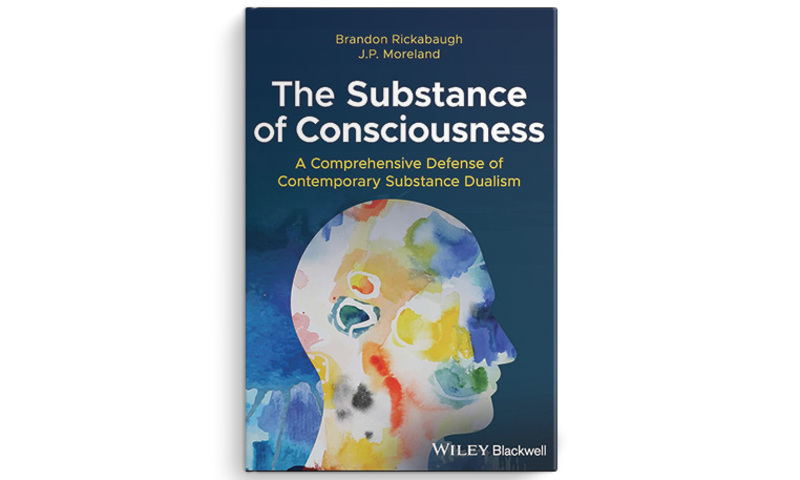At the end of the 19th century, substance dualism (SD) — roughly, the thesis that the human person is comprised of a substantial immaterial soul and a physical body — was widespread. Materialism was not a live option.
This sociological fact changed quickly, bringing about what William James described as “the evaporation of the definite soul-substance.” Arthur O. Lovejoy deemed the 20th century as “the Age of the Great Revolt against Dualism.” The inevitable defeat of substance dualism was assumed to be a foregone conclusion. Gilbert Ryle had, in the words of Daniel Dennett, “danced quite a jig on the corpse of Cartesian dualism.”
Yet, despite a remarkable rise in apt defenders in the latter 20th century, novel and sophisticated defenses of substance dualism were largely ignored. In the words of D. M. Armstrong, dualism was seen as “curiously formal and empty.” Daniel Dennett incites the overall acceptance of “the dogmatic rule that dualism is to be avoided at all costs.” Denunciations of substance dualism are often expressed quite dramatically. Here is a representative sample:
- “Few ideas are as unsupported, ridiculous and even downright harmful as that of the ‘human soul.’”
- “… dualism is akin to explaining lightning in terms of Thor’s anger, and hence is
- fundamentally primitive and pre-scientific.”
- “… the concept of a non-physical soul looks increasingly like an outdated theoretical curiosity.”
- “To defend dualism is to close one’s eyes to the enormous and ongoing scientific developments in the mind and brain sciences in the past few centuries — and to wallow in mystery.”
Fast forward to the late 20th and early 21st centuries. Things are changing. We are witnessing a resurgence of substance dualism. Physicalism remains the dominant view in the philosophy of mind. Yet, it is no exaggeration to say that substance dualism is undergoing an unforeseen revival and is poised to make a strong return in the 21st century. These reasons are not mere sociological reflections but expressions of the rapid growth in sophisticated new work on substance dualism. A large number of recently published book-length defenses of substance dualism evidence this, along with collections of new pro-substance dualism papers. The number of journal articles defending substance dualism is too long to list. Conspicuous by their absence are substantive engagements with these works.
Interestingly, the intellectual presumption of naturalism and atheism fuels most rejections of substance dualism. Happily, over the last 50 years, there has been a ubiquitous resurgence of theism, predominantly Christian theism, across the philosophical disciplines. The result? Naturalism is no longer the only game in town. With the loss of its hegemony, broader worldview implications, particularly those involving naturalism versus theism, were back on the table.
Given the ascendency of theism, proponents articulated several claims about the advances in theistic scholarship and the explanatory resources of theism vis-a-vis naturalism in the philosophy of mind, e.g., precise clarification of the intelligibility of a Spiritual Substance, additional insights on various interaction
problems, the superior explanatory power of theism regarding the origin of consciousness and several features of human persons. Human persons fit naturally in a theistic worldview but remain recalcitrant for naturalism.
Our goal in this book is to defend substance dualism in its broadest form, what we call Mere Substance Dualism. This common understanding of substance dualism emphasizes the nature of the self or soul as an immaterial substance and leaves the nature of the body an open question.
Substance dualism requires the following theses:
- The human person (sans disembodiment) is comprised in one way or another of a soul and a body.
- The soul is an immaterial substance.
- The body is — or at least partially is — a physical entity or an aggregate of physical entities.
- In principle, the human person can exist without his/her body.
Substance dualism has withstood centuries of objections. It is a minority view with a resurgence underway. SD is almost always dismissed as out of fashion. However, without the dubious assumption that current ideological popularity is a defeater for argument, this dismissal is telling. But suppose that ideological popularity provides some vital evidence against a view. Now the story changes dramatically. SD enjoys greater evidential support than naturalist views, as SD is arguably the most popular view in the entire history of philosophy. And appealing to current ideological fashion’s popularity seems arbitrary, historically chauvinistic, or naturalistically presumptuous.
In the following chapters, we will lay out a detailed, sometimes new, case for SD. But as noted above, we must keep an eye on worldview issues when doing philosophy of mind.
Adapted from The Substance of Consciousness: A Comprehensive Defense of Contemporary Substance Dualism by JP Moreland (Distinguished Professor of Philosophy) and Brandon Rickabaugh (M.A.,’13). Published by Wiley Blackwell. Used by permission. Copyright (c) 2023.
 Biola University
Biola University

